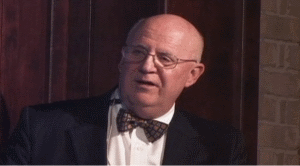There is one God, who created all that exists. He is YHWH and Elohim of the Hebrew Scriptures -- the Father of our Lord Jesus Christ. From the beginning, God made humankind for constant loving fellowship with himself. However, the first human being, Adam (both a proper name and the Hebrew word for humankind), chose autonomy over creaturely dependence and expressed that choice by disobeying. This act of human rebellion brought sin, death and ruin into the world, and our willingness to sin has given them a hospitable welcome. Our sins stand between us and the Creator, and we cannot remove them … [Read more...]
GOD’S LOVE IN SIX VIEWS – 2
"For God so loved the world that he gave his one and only Son, that whoever believes in him shall not perish but have eternal life" (John 3:16). Perpetual love. The God who gave his only Son will not forsake us halfway to heaven. On this we have Jesus' own promise: "This is the will of him who sent me, that of all that he has given me, I lose nothing, but raise it up on the last day" (John 6:39). Because God is faithful, we can be confident. Indeed, God's faithfulness is the only basis we ever have to be confident of our salvation. Jesus' own resurrection shines as an eternal … [Read more...]
GOD’S LOVE IN SIX VIEWS – 1
"For God so loved the world that he gave his one and only Son, that whoever believes in him shall not perish but have eternal life" (John 3:16). Passionate love. God so loved that he gave his "one and only" Son. The Greek word behind this descriptive phrase literally means "unique" -- one of a kind. The lavishness of God's love is no less remarkable simply because we cannot understand the mystery it involves. God is the Great Initiator who loved us first. We can never get "one up" on him. The most we can ever do is to love God in return (1 John 4:9-10). Personal love. God so loved the … [Read more...]
ATONEMENT THEORIES – 3
Christians affirm that through the life, death and resurrection of Jesus Christ, God forgives sinful human beings and restores them to right relationship with himself. However, when asked to explain exactly how this atonement occurred, they have offered a variety of theories. A gracEmail subscriber requests more detail concerning these different explanations. * * * The penal substitution explanation of Jesus' atonement rests on such scripture passages as Isaiah 53:4-6, Romans 3:23-26; 2 Corinthians 5:19-21 and 1 Peter 2:24, plus the Old Testament sacrificial system which Jesus fulfilled in … [Read more...]
ATONEMENT THEORIES – 2
Christians affirm that through the life, death and resurrection of Jesus Christ, God forgives sinful human beings and restores them to right relationship with himself. However, when asked to explain exactly how this atonement occurred, they have offered a variety of theories. A gracEmail subscriber requests more detail concerning these different explanations. * * * Moral influence. This view was made popular by Peter Abelard, a French philosopher/theologian who offered it as an alternative to the satisfaction theory proposed by his older contemporary, Anselm of Canterbury, and to the … [Read more...]
ATONEMENT THEORIES – 1
Christians affirm that through the life, death and resurrection of Jesus Christ, God forgives sinful human beings and restores them to right relationship with himself. However, when asked to explain exactly how this atonement occurred, they have offered a variety of theories. A gracEmail subscriber requests more detail concerning these different explanations. * * * New Testament writers do not try to explain the inner workings of God's accomplishments in Jesus. Instead, they tell the story of Jesus and call attention to the blessings, obligations and warnings that flow from it. Along the … [Read more...]
ATONEMENT: REALITY AND THEORIES
A gracEmail subscriber writes: "I recently came across some of C. S. Lewis’ comments concerning his denial of the 'penal, substitutionary' view of atonement. I have never heard atonement explained in any other way. This led me to research a former and greatly respected professor who also basically denies the 'penal substitutionary' view. Is this just a minor disagreement or does it involve an essential truth of the Christian faith?" * * * Christians everywhere proclaim that through the life, death and resurrection of Jesus Christ the holy God forgives sinful human beings and restores them to … [Read more...]
JESUS AND HUMAN SACRIFICE
A gracEmail subscriber in Korea asks, "How could God, who abhors human sacrifice, sacrifice his own Son? How could the murder of an innocent man (Jesus) be necessary to bring about our forgiveness by God?" * * * When speaking concerning divine mysteries such as the Atonement, we must speak hesitantly and with great reverence. However, we may be sure that God always behaves consistently with his own character. He would not condemn the slaughter of innocents with one breath, only to turn and do the very thing he had condemned. Remembering two truths here will help us avoid needless … [Read more...]
COSMIC CHILD ABUSE?
A gracEmail subscriber has heard someone say that if God required his sinless Son to die in order to forgive our sins that would be both unjust and "cosmic child abuse." What does Scripture say about this? * * * The atonement made by Jesus Christ involves holy mystery. We should therefore speak about it with both reverence and humility. When we have said all that the Bible tells us on the subject we will still have some unanswered questions. This is a controversial topic and there are extreme statements on both sides. It is an unbiblical extreme, for example, to deny that Jesus' death … [Read more...]
ACTUAL ATONEMENT
A gracEmail subscriber writes: "How do you view the issue of man's choice or God's decree with regard to our salvation? Is limited atonement true or did Christ die for all?" * * * The biblical point is not "limited" atonement, which sounds like God intentionally excluded some people from salvation. It is rather "particular" or actual atonement, which means that Jesus actually saved real people with names and faces. He did not merely make salvation theoretically possible without really saving anyone. By his faithful doing and dying, Jesus actually saved everyone who will finally be saved. … [Read more...]


